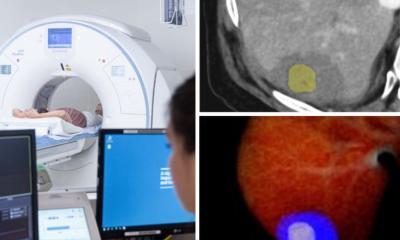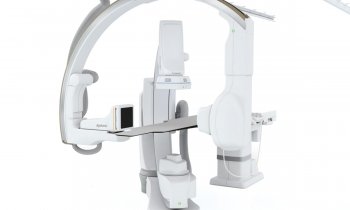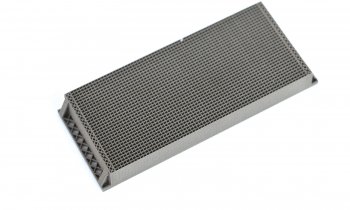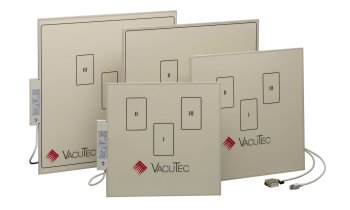Sponsored • Radiation garment
Zero-Gravity suspended radiation protection
In today’s operating rooms, increasing fluoroscopic procedures keep interventionists at work longer, wearing the hugely heavy lead aprons necessary for protection against radiation. Chronic back pain is often accepted as something that simply comes with the job. Relief has arrived at last in the form of Zero-Gravity, a suspended radiation protection system designed to increase radiation protection whilst also eliminating the weight burden for the operator.
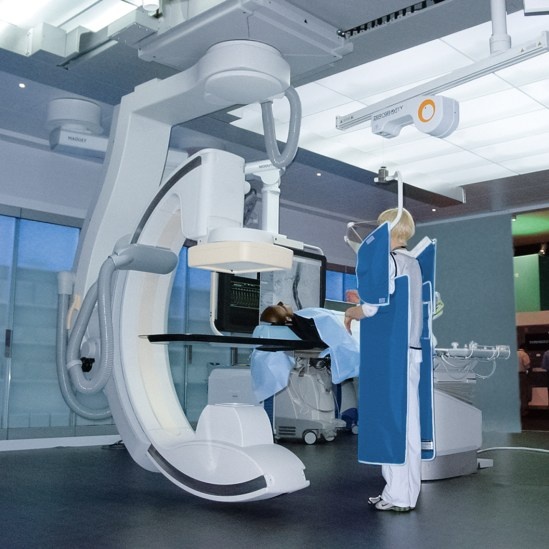
Around half of all respondents working in interventional cardiology said they’ve had back pain from wearing lead aprons
Andreas H Mahnken
With his team, Dr Andreas H Mahnken, Director of the Diagnostic and Interventional Radiology Clinic at Marburg University Hospital, Germany, found significant differences when comparing the suspended Zero-Gravity system to several conventional ones. Asked about the link between wearing lead aprons and chronic back pain, Dr Andreas Mahnken pointed out that several survey-based studies in English-speaking countries, such as the USA and UK, have focused on cardiology departments. ‘Around half of all respondents working in interventional cardiology said they’ve had back pain from wearing lead aprons. Thirty-five percent of these complaints are lumbar spine-related, 25 percent concern the cervical spine, and we see knee and hip complaints in 20 percent of cases. Orthopaedic problems happen much more often than cataracts or haematological diseases, but they haven’t been studied much, so far.’

At last year’s ECR Mahnken presented results of his own study, which compared the orthopaedic burden of various radiation protection systems. What did he discover? ‘We found clear differences between the radiation protection systems when it comes to physical strain on the user. The Zero-Gravity system reduced shoulder strain by about 80 percent.’ Of his own experience with Zero-Gravity, he said: ‘It’s been liberating! It feels good to operate without all the weight. That’s especially true for someone who has spent up to eight hours a day in the operating room over many years. When using the Zero-Gravity system, I’m not as tired at the end of my working day as I used to be, and I’m definitely more relaxed.’
Does he thus believe Zero-Gravity should be used in every catheter lab? ‘I would definitely support that,’ he replied. ‘Zero-Gravity isn’t just an excellent radiation protection system. Its bigger potential lies in its ability to help alleviate orthopaedic stress on doctors. First though, there needs to be more information on the orthopaedic risks of wearing conventional lead aprons. Physicians, hospital administrators and nurses still have limited knowledge and awareness of these problems. It would also be good for clinics to see Zero-Gravity as an investment in employee health, which current and future employees will appreciate.’
* Zero-Gravity is distributed by Biotronik. Details: www.biotronik.com/en-de/products/zero-gravity
Source: Biotronik
07.05.2018





